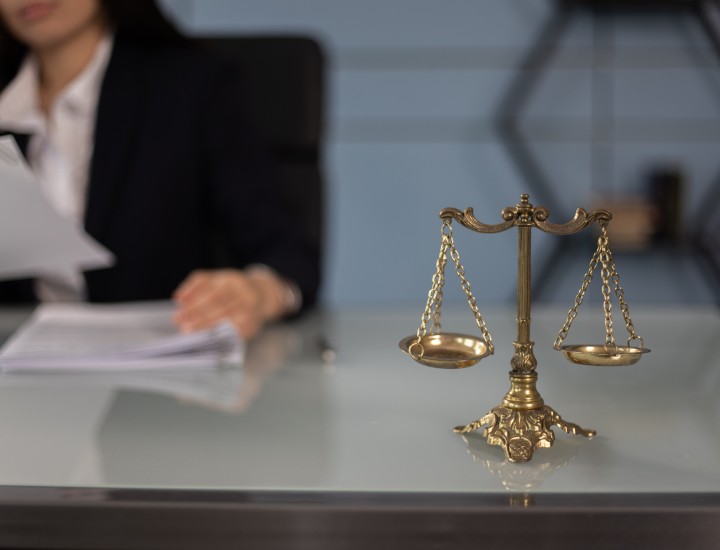The Honorable Phyllis W. Beck Public Interest Law Fellowships
Information + Application Guidelines
Background
The Independence Foundation is a private, not-for-profit philanthropic organization located in Philadelphia, Pennsylvania and serves Philadelphia and its surrounding counties. The Foundation supports organizations that provide services to people who do not ordinarily have access to them, including public interest law firms that provide free civil legal services. In 1996 the Foundation established the Independence Foundation Public Interest Law Fellowship Program to support those within five years of graduation from a law school who want to work for a public interest law firm funded by the Foundation. Since its inception, over 120 Fellowships have been awarded, with many past Fellows in leadership positions in the Philadelphia Public Interest Law community.
Application Process
Project Development
Fellowship applicants must identify a sponsoring organization (must be a public interest law firm funded by the Independence Foundation - currently the Foundation funds these public interest law firms). Together with the sponsoring organization the applicant will develop the project. A potential sponsoring organization must be a civil legal services organization serving the disadvantaged and must have its principal office in Philadelphia, Delaware, Montgomery, Bucks, or Chester County, Pennsylvania.
A project typically consists of a new substantive area of legal practice or type of legal service which is consistent with the sponsoring organization’s overall mission but in which the organization has generally not previously engaged. For example, an Independence Foundation Fellow at the Legal Clinic for the Disabled provided focused legal services to disabled men and women who were victims of caregiver, domestic or other abuse (a new area for them). In rare instances Fellowships are granted to support public interest law projects that do not involve developing a new area of practice but rather consist of the development of a new approach that more effectively, innovatively and comprehensively delivers a type of legal service the organization has previously attempted to provide. For example, an Independence Foundation Fellow at SeniorLAW Center expanded and improved on the organization’s ability to serve financially and physically abused senior citizens by delivering legal services to these clients in their own homes and by engaging in extensive community education to help these seniors avoid abusive situations.
Fellowships will not be granted to fund either the prosecution or defense of criminal defendants. Moreover, although a Fellow may engage in some policy- based activities, a major component of a Fellow’s anticipated work must consist of direct legal representation of disadvantaged clients. Direct representation may include representation in litigation before either judicial or administrative forums, or representation of clients in transactional matters.
The duration of a Fellowship is one year. Fellowships may be renewed for one additional year if requested by the Fellow and approved by the Foundation Board of Directors and the sponsoring organization.
If you have questions or concerns about your proposed project, contact Heather McDanel at hmcdanel@independencefoundation.org early in the development process to discuss.
Submitting the Application
Full applications must be submitted online and can be found at: Public Interest Law Fellowship Application. It is important in the essay portion of the application to convey your commitment to working in public interest law and your personal motivation for this work. In addition, the essay describing the proposed project should demonstrate knowledge about the clients that would be served by the project, the goals of the project and their importance to clients, and activities that need to be undertaken to meet those goals, including what supervision will be provided by the sponsoring organization to realize success.
There is no GPA requirement to apply. Applicants will be considered based on their entire application, including commitment to public interest law, leadership abilities, educational attainment, letters of recommendation, the worthiness of the proposed project’s goals and ability to address the complex legal needs of their clients. We understand that circumstances such as family issues, need to work full time to be able to attend law school and other issues can impact law school grades.
Applicants do not need to be US citizens to apply. If not a US citizen, applicants must be able to demonstrate ability to legally work in the US and be eligible to take a bar exam in the United States. Once admitted applicants must be eligible to practice law in Pennsylvania.
In addition to the application, the following documents must be uploaded:
- Resume detailing your work, volunteer and employment history
- Official Law School Transcript
- Letter of Recommendation from a Law School Faculty Member (Clinical or Academic)
- Letter of Recommendation from a Former Public Interest Employer
- Commitment Letter from the Sponsoring Organization
- Benefits Worksheet from the Sponsoring Organization
Full applications and supporting materials are due October 6, 2025.
Review Process
A special Advisory Committee to the Foundation Board of Directors, consisting of both Foundation Board members, members of the judiciary and representatives of the legal community, will review all applications and make recommendations to the Foundation Board. The Board will make the final award of the Fellowships. Applications will be reviewed, and applicants will be informed if they move forward for an interview by early November. Interviews occur on the Monday after Thanksgiving and Fellowships will be announced in early December.
Role of the Sponsoring Organization
The sponsoring organization employs the Fellow during the term of the Fellowship, including administering payment of salary and loan repayment funds if applicable. The Fellow is to receive the same benefits (excluding pension, dependent benefits, travel costs and attorney registration and Continuing Legal Education costs) and paid leave as the organization’s employees. The sponsoring organization supervises and mentors, the Fellow, assisting the Fellow with the development and implementation of the Fellowship Project. The Executive Director reviews and signs the quarterly Fellowship reports due to the Foundation. As an employee of the sponsoring organization, a Fellow will receive the same vacation and sick leave as other comparable employees of the organization, which will be paid for through the Fellowship payments to the sponsoring organization. Because the Fellowship funds full-time work on the proposed project, maternity/paternity leave and unpaid leaves of absence will not be paid for by Fellowship funds. For Fellows taking paid or unpaid maternity or paternity leave, the sponsoring organization may pay for this leave according to their personnel policies, and the Fellow and the sponsoring organization must commit to resuming the work on the Fellowship project upon return to work for the remaining duration of the Fellowship, less the leave time taken. Fellowship payments will resume after the Fellow returns to full time work after maternity leave or leave of absence.
The sponsoring organization must prepare a Commitment Letter for submission to the Foundation with the application containing:
- a brief description of the organization, including its structure, history, clients and public interest goals and activities.
- a representation that the organization is a qualified 501 (c)(3) organization.
- a description of the public interest law project to which the applicant will be assigned if a Fellowship is granted, its significance to the clients served by the project and how it fits into the organization’s mission and work;
- the supervision that will be provided by the Fellow, including the names and experience level of those providing it and,
- a commitment to employ the applicant in that position on a full-time basis, providing adequate supervision and resources necessary for that work, under the terms and conditions applicable to all similarly situated employees of the organization (except compensation), for a period of one year, subject to renewal for a further year upon the approval of both the Foundation and the sponsoring organization.
As the first year of the Fellowship is concluding, the Executive Director should submit a confidential evaluation of the Fellow’s work during the first year to the Foundation and host a meeting of staff and Board members of the Foundation with the Fellow and supervising attorneys, to discuss the Fellow’s application for a second-year renewal of the Fellowship.
Employment/Compensation
The Fellow is employed by the sponsoring public interest law firm. The Independence Foundation makes advanced quarterly payments to the sponsoring organization for salary and benefits.
First year Fellows receive a salary of $64,000 as compensation for full-time employment. Second year Fellows receive a salary of $67,000. In addition, the Foundation reimburses the sponsoring organization for the cost of health care benefits, disability insurance and the employer’s withholding taxes. The Fellowship does not include payment for pension, travel, attorney registration fees, continuing education costs or dependent health benefits.
Fellows who have student loans are eligible for a maximum of $10,000 per year for loan repayment.
If you have more questions or need more information, please contact Heather McDanel at hmcdanel@independencefoundation.org
Apply for this Fellowship



